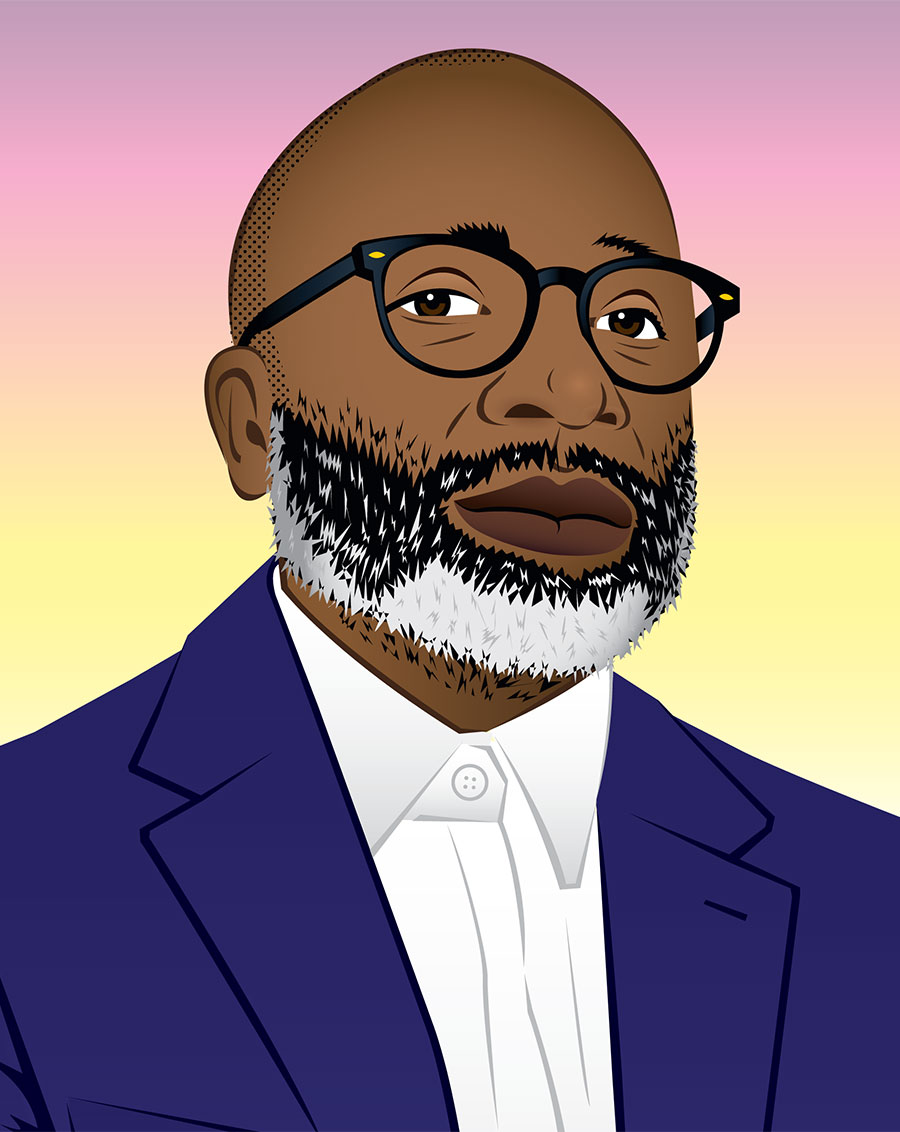■ I’m not self-made. I’m the manifestation of something that was generationally in the making. I’m the realization of my mom’s and dad’s and grandmom’s dreams. I had eight sisters who loved me and a childhood where there was no disconnect between my excitement and aptitude and ambition and my parents’ ability to say, “Yeah, go for it. We love you.”
■ When I have an exhibition, it’s a chance for me to say, What do I feel like studying right now? It is a kind of research prompt. Lately, I’ve been thinking about the Young Lords, a Puerto Rican crew in Humboldt Park, and about the presence of Puerto Ricans on Division Street and how Division is changing.
■ There are external things constantly impeding on the parts of this work that give me joy. Like the cycles of art fairs, or just demand. I now find myself coming back to writings, to artworks, that were up against a deadline and wanting to refine them.
■ I learned how to be a better administrator at the Chicago Transit Authority. I worked there as a public art researcher and then as the first transit arts planner. Valerie Jarrett was chairman, and I watched her lead. She never wanted to be ill prepared, so the anxiety of her team was in ensuring that she felt prepared. She was an absolutely straight shooter. If she was not happy, she was very clear that she was not happy. But when people did things well and the organization shined, she also gave gratitude. Over the years, I would lead with gratitude, but when people would fail my expectations, I would not always be straightforward about sharing my concerns. At some point, I went from being passive to being aggressive with that. But now it’s like, “Good things happen and bad things happen. Let’s just talk about it.”
■ As a leader, the trick is to identify people who have the same values as you, and then you can articulate an expectation of culture. Like, “Hey, around here, we work hard.” That might not be everybody’s jam.
■ This newspaper had a picture of the Stony Island Arts Bank broken. The article said I had too many white people in leadership, that there was a kind of staff inequality. As a five-year-old arts organization that was punching above its weight, it felt like the story was judging and evaluating me on a much bigger scale, like the way you would criticize a large white institution in the city. And I remember thinking, Man, I’ve given my whole self over to this project, everything I own is tied up in this, and I’ve done the very best that I can. I built this thing and stuck my chest out. I was proud to say, This is a site of Black self-determinism. I willed it to happen.
■ I have more than I’ve ever wanted, and what I want gets simpler and simpler. Now I’m just kind of quietly tinkering and moving along. And in that quiet movement, I’m trying to amplify other artists who want to be frontal, who want to grow their situation, who feel like this is their moment to shine. I feel like André 3000 — like I’ve had my moment. I’ve had a lot of mountaintop experiences, and I could feast on those for a long time.



